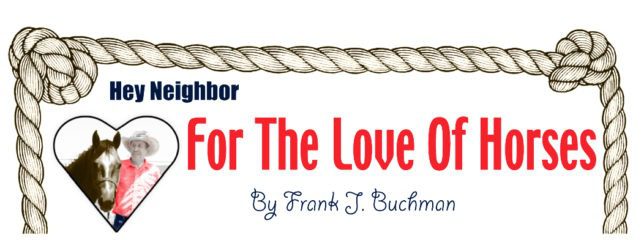Skinny horses take a long time to recover.
Frequently, when somebody sees an extremely malnourished horse, their first thought is to give the animal lots of rich feed. That is just about the worst thing that can be done, despite the intentions being quite humane.
There are any number of reasons why a horse might get into this condition, but the primary reason is lack of knowledge or economic failure on the part of the person charged with caring for the horse, according to Jerry Finch, president of Habitat for Horses, Hitchcock, Texas.
“Over the last 10 years, we’ve handled thousands of cases of reported neglect or abuse,” Finch said. “Education is the most powerful tool, and most owners are more than receptive to helpful advice.”
Vast majority of the horses handled by Finch through his program have been brought back to life through the use of a feeding program especially designed for malnourished horses. “We’ve lost a handful of horses that were far too emaciated to recover, and some simply gave up on the will to live,” Finch stated.
Few people have actually seen a truly starved horse. “Once you have, it is a memory that will be burned into you for as long as you live,” Finch contended. “In its last few days, a starved horse looks like skin has been sprayed over its skeleton, with well defined hip bones, spine and ribs just underneath the skin.
“Despite so many odds,†Finch continued, “the will to live often keeps the horse going far longer than it seems possible. We’ve seen horses eat fence posts, rails, trees and dirt just to stay alive.”
Many owners actually think that horses can manage for themselves in grassless pastures. Others even believe a horse can go for weeks without feed, hay or water in a confined stall.
“If someone can not properly feed or care for their horse, they need to release it to someone better able to handle the financial burden,” Finch emphasized.
Actually, there are several serious reasons why a horse may become thin. “Although it could be costly, a veterinarian should be contacted, and that could save the horse’s life,” Finch explained. “A physical exam, blood work, fecal and looking at teeth may reveal an easily-cured problem that will restore the horse’s health, if advice is followed.”
Horses get worms, and normal worming medication is sometimes ineffective. “Worms can cause internal bleeding and even blockage of the intestines which can lead to death unless it is corrected. A vet can identify the worm causing the problem and prescribe proper medication to kill it,” Finch clarified.
Starved horses should not be immediately wormed. “Certain medications can cause a heavy die-off of worms and massive internal bleeding,” Finch related.
Re-feeding a starved horse requires knowledge of the systemic damage that has occurred and what is necessary to slowly restore the health.
“Done wrong, a well meaning person can kill a horse by supplying too many concentrated calories to a system that cannot handle the load,” described Finch. “Initial feedings of small quantities of alfalfa and grass hay fed many times over a day, should be the beginning of reintroduction of feed.”
Quantity can be increased, and frequency decreased, until at the end of about 10 days, the horse can eat as much hay as it wants. Then high quality feed can be introduced gradually increasing it until the end of the month when feed intake should be about 1 percent of the normal weight of the horse.
“With a high quality feed, vitamin and mineral supplements are not needed and should be avoided because of the possibility of throwing off the calcium, phosphorous and magnesium balance,” Finch warned. “If the horse is to be pastured, only allow access for a brief period at a time until the digestive system can adjust to the grass intake.”
A starved horse may not be able to handle any medical vaccinations, and they should not be given until the horse is in near normal condition.
Starved horses should not be pastured with healthy horses, but should be individually stalled until they return to better health. “Thin horses are easily susceptible to diseases that a normal horse can fight off, and they are not able to compete with other horses for feed,” Finch detailed.
There will be a slight weight loss during the initial week, but weight should then start building rather quickly.
“The horse will be more responsive and may show signs of increased energy, but the restoration of fat and muscle will be slow,” Finch verified. “Within a couple of months, those who have not been around the horse will notice a big difference, but it could take nine months or longer to restore a horse to full normal weight.”
+++
